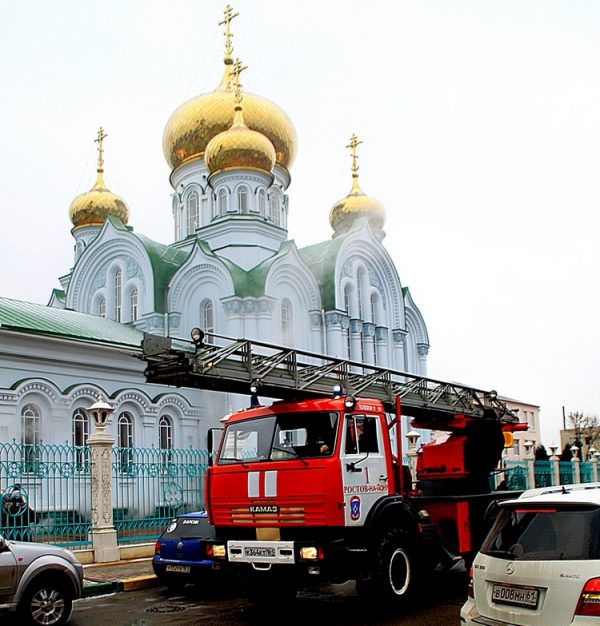St. Petersburg. May 16. INTERFAX – Legislative initiatives concerning strengthening of rules related to fire- and counter-terrorist protection on religious organizations’ premises are irrational and may provoke discord, believes Head of Moscow Patriarchal Legal Service, Hegumenia Ksenia (Chernega).
A draft federal law “on state oversight (supervision) and municipal control” which provides for risk-oriented approach to conducting inspections raises some concern”, stated Mother Ksenia on Wednesday during one of the discussions at St. Petersburg International Legal Forum.
The legal act presumes that the inspection bodies will be allowed to estimate risks of religious organizations’ non-compliance with the legislature by assigning danger classes to religious confessions or communities, according to which specific inspection procedures (as well as inspection frequency) would be determined,.
“Such initiative to assign danger classes to religious organizations, to divide communities into “safe” and “unsafe”, violates the unconditional principle of religious associations’ equality before the law and will result in certain tension in relationship between the government and the Church, and will lead to religious discord and enmity. Moreover, this legal act allows for inspections without preliminary day-time coordination which may cause divine services’ disruption and may insult religious feelings of the clergy and congregation”, said Mother Ksenia.
She also pointed out that the Church does not agree with the law adopted at the first reading. According to this law, administrative liability for failure to meet crowded places’ counter-terrorism protection requirements is tightened. According to Mother Ksenia, this may lead to unjustifiably strong complaints against religious buildings and premises, especially in small settlements. “Religious organizations function by the means of citizens’ donations. Thus it is clear that if such stringent requirements are applied, it is essential to use balanced approaches”, added Mother Ksenia.
Translated by Kirill Nikolaev

















